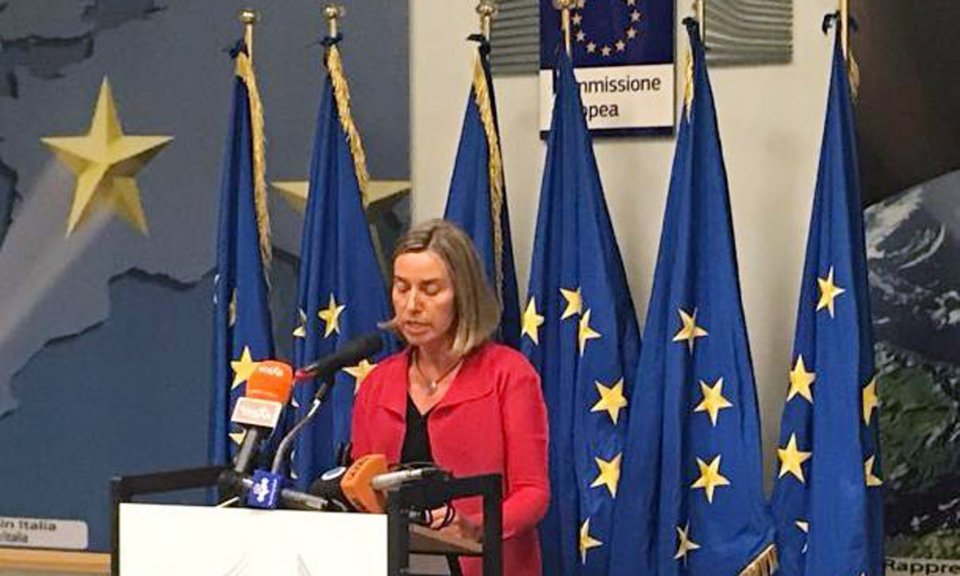Europe failed in its first test of preserving JCPOA

TEHRAN - The nuclear agreement equations are getting more and more complicated. Many analysts of the international affairs have predicted that, regarding the direct influence of the United States and U.S. Treasury orders and decisions on European companies, European authorities can’t provide necessary guarantees for the continuation of the nuclear deal in action.
Besides, others believe that the Joint Comprehensive Plan of Action (JCPOA) isn’t actually an independent variable in EU policies and actions, and at any moment, the European troika and other EU member states may change their approach to this issue. The key question is, can Europe, in practice, take necessary measures to maintain the nuclear deal, without the U.S. interference?
The fact is that without the presence of the United States, the nuclear deal is no longer the “JCPOA”. Because the European countries aren’t basically independent in many grounds, including Iran nuclear agreement. They have practically been subject to Washington’s decisions and policies over the past years. Everybody remembers that for the first time, negotiations on the Iranian nuclear case began with the presence of Iran and the European troika. And in these talks, the foreign ministers of the three European countries of Germany, France and Britain, played a highlighted role. Nevertheless, in those negotiations, European countries coordinated any position and decision with the U.S. government. This is one of the main reasons for the failure of the negotiations of Mr. Rouhani (then the secretary of the Supreme National Security Council) with the European side. The problem was the United States didn’t basically accept its obligations which was determined in the talks. In the next round of talks, the United States was seriously involved, and subsequently, Russia and China expressed their position on the nuclear case of our country more clearly. The formation of negotiations between Iran and the members of the P5+1 can be interpreted and analyzed in the same vein.
Then it was Donald Trump, the U.S. controversial President’s time to challenge the JCPOA. From the outset, Trump didn’t accept the JCPOA, and made the nuclear deal with Iran an instrument for raising hostility against our country! He behaved as if our country had to answer for other issues such as its missile power. It’s crucial to analyze The European countries’ performance in such an atmosphere. The European countries have failed to fulfill their obligations to the JCPOA, and in questioning the United States for not being committed to its obligations under Iran's nuclear deal. Instead, they pushed Iran to accept a secondary and complementary agreement, and to accept further restrictions on its missile program and its regional activities.
In any case, the withdrawal of the United States has actually led to the failure of the nuclear deal. This is while European countries are currently trying to maintain the nuclear deal as a political achievement. In general, the JCPOA has different strengths and weaknesses. The Achilles heel of this agreement is paragraphs 11-13 of UN Security Council Resolution 2231, which states that if the United States withdraws from the nuclear agreement unilaterally, this agreement will no longer be valid in the previous manner. The other parties involved (other members of the P 5+1) play a less central role in this equation, and haven’t had an independent strategy towards this issue. And this rule is true of the European troika as well.
On the other hand, the United States has invested heavily in major industries in the world, including the aircraft industry. Now Washington is using this massive investment to put these companies and other pressure. Meanwhile, Airbus and Boeing have explicitly stated that they are subject to U.S. decisions on the JCPOA. Therefore, according to the type of these international agreements, Iran should demand compensation for the cancellation of agreement done by these, and this issue should be pursued by our country and the Ministry of Roads and Urban Development. This was the first test of European companies in confrontation with the United States (after Washington's withdrawal from the JCPOA). This is while our country has taken a flexible stance in response to Europeans’ continuous requests after the United States announced that it’s no longer part of the nuclear deal. In return, Iran has called on the European authorities to stand up to the United States in practice against sanctions against our country. However, the stance taken by Airbus and Boeing companies reflects Europe's lack of resistance to the United States. It is obvious that the United States should compensate for canceling the Airbus and Boeing contracts with Iran. But beyond this, the cancellation of these agreements and the passive position taken by the European officials clearly showed that the European troika can’t be trusted in preserving and supporting the JCPOA.
